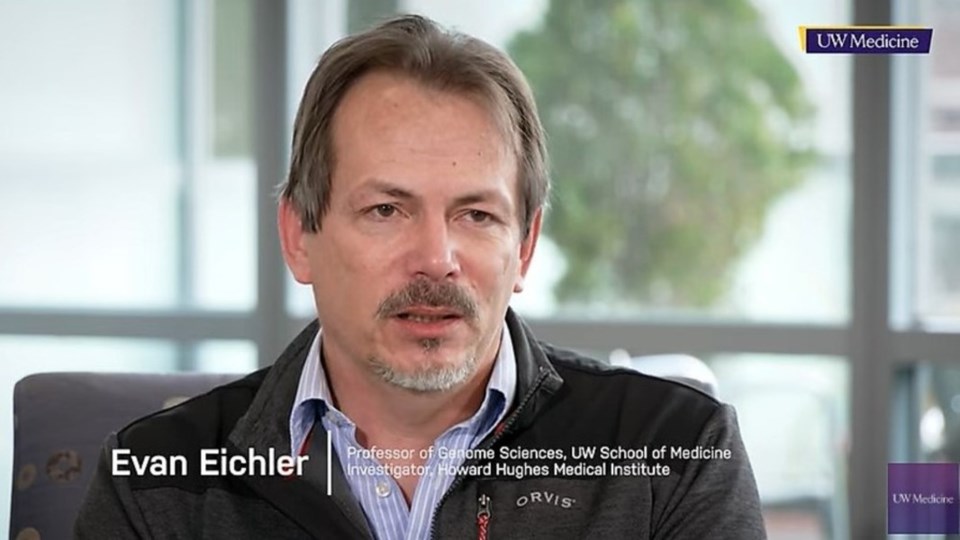KAMSACK — As a member of the multi-university research group that led the effort to complete a gapless human reference genome, a Kamsack Comprehensive Institute graduate has been named to the 2022 Time 100, the magazine’s annual list of the 100 most influential people over the past year.
Dr. Evan Eichler of North Bend, Wash., who graduated from KCI in 1987, and whose parents Joe and Mary Jane Eichler live in Swan River, Man., joins the group of Drs. Karen Miga, Adam Phillipy, and Michael Schatz, who were honoured together as a team in the magazine’s Innovation category.
A member of the Brotman Baty Institute at UW Medicine (University of Washington), Eichler is a professor of genome sciences and a Howard Hughes Medical Institute Investigator, said a press release from UW Medicine.
The achievement was published in Science on April 1, along with a series of scientific papers analyzing different aspects of the finished genome.
The work was the culmination of a large consortium, the Telomore-to-Telomere or T2T, which aimed to complete sequences of all 23 human chromosomes, end-to-end, said the press release. A Time tribute to the project team was written by Dr. Jennifer Doudna, the 2020 Nobel Laureate in Chemistry recognized for her work on CRISPR-Casp gene editing. She pointed out the significance of their recent achievement in advancing understanding of human evolution, common and rare diseases, and the structure and function of the human genome.
“I admire the T2T group’s willingness to grapple with the technical demands of this project and their persistence in expanding the genome map into uncharted territory,” Doudna wrote. “The complete human genome sequence is an invaluable resource that may provide new insights into the origin of diseases and how we can treat them. It also offers the most complete look yet at the genetic script underlying the very nature of who we are as human beings.
“In the scientific community, there wasn’t a consensus that mapping these missing parts was necessary,” Doudna said. “Some in the field felt there was already plenty to do using the data in hand. In addition, overcoming the technical challenges to getting the missing information wasn’t possible until recently.
“But the more we learn about the genome, the more we understand that every piece of the puzzle is meaningful.”
Eichler’s lab and his graduate students, alongside their work on the overall human genome completion project, contributed to advances in gene sequencing technology and analytics that allowed scientists to decipher areas of the human genome.
“These regions were found to contain new information about what makes us distinctly human, in comparison to other primates,” the release said. Their findings also provided insights into primate evolution.
Other T2T studies in his lab are clarifying the structure and function of centromeres, which are critical for the accurate segregation of genetic material during cell division.
Among the many intriguing findings of the Eichler lab were certain human-only areas of repeated code, it said. These human-specific areas of segmental duplication are reservoirs for new genes that drive the formation of more neurons and increase connectivity among synapses in the frontal cortex of the brain. This is the part of the brain where reasoning, logic and language functions take place.
Eichler was part of the original Human Genome Project back in 2001. He was fascinated by regions of the genome that were complex from the perspective that they were highly repetitive, but also encoded genes.
Readers for the Kamsack Times first read of Eichler in the mid-1980s when he was profiled with his extra-curricular project of raising Angora rabbits with his mother.
A teacher had encouraged him to take on the project, said his father, who taught at Kamsack from 1980 to 1996.
Evan, who holds Canadian as well as American citizenship, and his wife Marla, were to be treated to a black-tie event in New York City last weekend, Joe said, adding that the couple has four children, including an architect, a chemist, a teacher, and the youngest, still a student at school.




